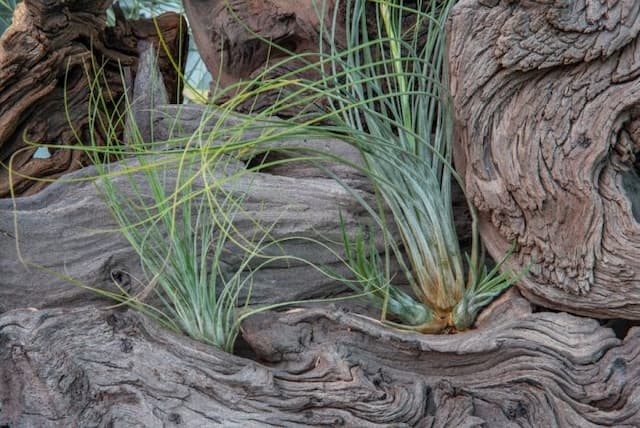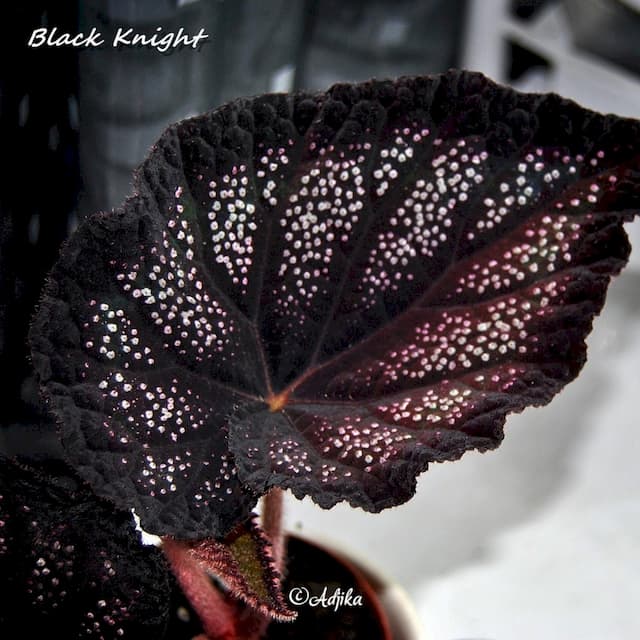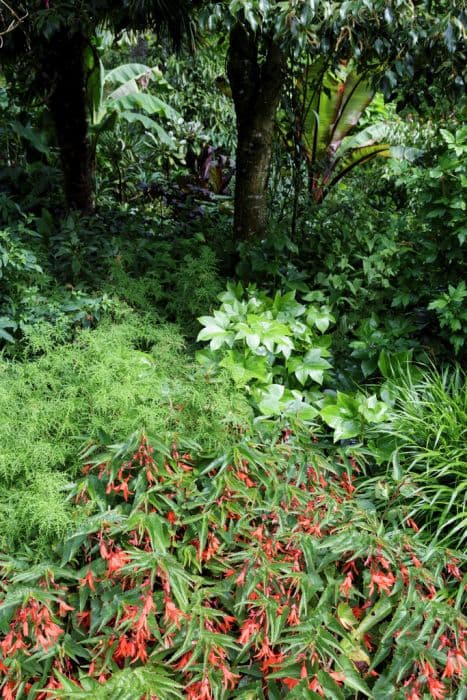Wax Begonia Begonia 'Ambassador Rose' (Ambassador Series) (S)

ABOUT
Begonia 'Ambassador Rose' is a strikingly ornamental plant that is part of the Ambassador Series. It is known for its lush and vibrant foliage coupled with eye-catching flowers. This variety of begonia features glossy green leaves that offer a beautiful contrast to the blossoms. The leaves are commonly heart-shaped with a slightly wavy edge, giving the plant a full and textured appearance. The flowers of the Ambassador Rose begonia are its most notable feature, living up to its name with a lovely rose-pink hue. These blooms are delicate and somewhat rounded, often resembling miniature roses. The clusters of flowers create a generous splash of color, which can be quite showy and are known to attract attention in any setting. The bloom period for this plant typically extends through the warmer months, providing a long-lasting display of its charming flowers. The begonia's overall growth habit tends to be bushy, contributing to its lush look. This makes the plant a popular choice for various decorative purposes, including container planting and bedding in garden landscapes. Its elegant combination of green foliage and rose-pink flowers gives it a classic and romantic appeal, making the Begonia 'Ambassador Rose' a prized selection for both novice and experienced gardeners alike.
About this plant
 Names
NamesFamily
Begoniaceae
Synonyms
Ambassador Rose Begonia
Common names
Begonia 'Ambassador Rose'.
 Toxicity
ToxicityTo humans
Begonias, including the Ambassador Rose Begonia, contain compounds like oxalates which can be mildly toxic when ingested. If any part of the plant is eaten by humans, it can result in symptoms like irritation of the mouth, lips, throat, and tongue, difficulty swallowing, and nausea. In some cases, vomiting and diarrhea can also occur due to gastrointestinal upset.
To pets
The Ambassador Rose Begonia is considered toxic to pets due to the soluble calcium oxalates it contains. If a pet ingests any part of the plant, symptoms such as drooling, vomiting, and difficulty swallowing may be observed. In serious cases, ingestion can lead to inflammation of the oral cavity and gastrointestinal tract, potentially resulting in pawing at the face, loss of appetite, and other signs of distress. It is important to prevent pets from chewing or ingesting this plant to avoid these negative health effects.
 Characteristics
CharacteristicsLife cycle
Annuals
Foliage type
Deciduous
Color of leaves
Green
Flower color
Rose
Height
8-12 inches (20-30 cm)
Spread
8-12 inches (20-30 cm)
Plant type
Herb
Hardiness zones
10-11
Native area
Central and South America
Benefits
 General Benefits
General Benefits- Easy to Grow: Requires minimal care and is suitable for novice gardeners.
- Colorful Blooms: Produces vibrant pink flowers that add a splash of color to any setting.
- Shade Tolerance: Thrives in shady areas where other flowers may not grow as well.
- Continuous Flowering: Offers a long blooming season, often from spring through fall.
- Compact Size: Its smaller stature makes it ideal for containers, hanging baskets, and border fronts.
- Drought Resistance: Once established, it can withstand periods of low water availability.
- Deer Resistance: Tends to be avoided by deer, which helps to prevent plant damage in certain regions.
- Attracts Pollinators: Invites beneficial insects such as bees and butterflies to the garden.
- Versatile Usage: Suitable for a variety of landscape uses, including garden beds, containers, and indoor settings.
- Low Maintenance: Does not require deadheading, making it less labor-intensive to maintain its appearance.
 Medical Properties
Medical PropertiesThis plant is not used for medical purposes.
 Air-purifying Qualities
Air-purifying QualitiesThis plant is not specifically known for air purifying qualities.
 Other Uses
Other Uses- As a natural dye: The petals of Begonia Ambassador Rose can be used to produce a soft, rose-colored dye for fabrics, yarns, or papers.
- In art projects: Pressed Begonia flowers can be used in crafting and scrapbooking to add a botanical element to the artwork.
- Educational tools: These plants can be used in classrooms or educational settings to teach children about plant growth, reproduction, and the needs of living organisms.
- Culinary garnish: Though not commonly used for consumption, the flowers could potentially be used as an edible garnish for salads or desserts, provided they have not been treated with pesticides.
- Photography: Their vibrant colors and attractive appearance make them perfect subjects for botanical photography and plant portraiture.
- Floral arrangements: The flowers can be used in live floral arrangements to add color and interest, especially in shade arrangements where other flowers might not thrive.
- Miniature gardens: Begonia Ambassador Rose can be used to add color and texture to fairy gardens or miniature terrariums.
- Color therapy: Its rose-pink hue can be used in color therapy practices to evoke feelings of compassion and love.
- Cosmetic uses: Petals may be incorporated into homemade potpourris or bath bombs for their color and subtle fragrance, ensuring they are free of harmful chemicals.
- Mood enhancement: The bright and cheerful appearance of Begonia Ambassador Rose can be used in interior designs and office spaces to enhance mood and productivity.
Interesting Facts
 Feng Shui
Feng ShuiThe Begonia is not used in Feng Shui practice.
 Zodiac Sign Compitability
Zodiac Sign CompitabilityThe Begonia is not used in astrology practice.
 Plant Symbolism
Plant Symbolism- Caution: Begonias often signify caution or a warning to be careful, possibly stemming from the plant's delicate nature and the need for proper care to keep it flourishing.
- Harmony: The balanced and symmetrical growth of begonias can represent harmony and peace, suggesting an equilibrium in one's life.
- Gratitude: Gifting begonias can express gratitude and appreciation, potentially because of the plant's long-lasting blooms and appealing appearance.
- Individuality: With their wide range of colors and forms, begonias can symbolize uniqueness and encourage the celebration of one's individual characteristics.
- Friendship: The welcoming appearance of the begonia flower may serve as a symbol of friendship and the deep connection between individuals.
 Water
WaterWax begonias like Begonia 'Ambassador Rose' generally prefer to be watered when the top inch of soil feels dry. This usually means offering water every 1 to 2 weeks, depending on environmental conditions. When watering, do so thoroughly until excess water drains out of the bottom of the pot, indicating the soil is saturated. It's important to avoid overhead watering to prevent leaf disease, so water at the base of the plant instead. An average watering might be around 16 ounces for a small pot, but you should adjust the amount based on the size of the plant and the dryness of the soil.
 Light
LightThe wax begonia prefers bright, indirect sunlight. Direct sunlight can be too intense and cause the leaves to burn, so a spot near an east or west-facing window is usually ideal. They can also tolerate some degree of shade, but too little light will lead to leggy growth and fewer flowers.
 Temperature
TemperatureWax begonias thrive in a range of temperatures, doing best between 60 and 75 degrees Fahrenheit. They can suffer damage if temperatures drop below 50 degrees Fahrenheit. Avoid exposing wax begonias to temperatures exceeding 85 degrees Fahrenheit as this could stress the plant.
 Pruning
PruningPruning wax begonias is important to encourage bushier growth and remove any spent flowers or dead leaves, promoting better air circulation and reducing the risk of disease. Light pruning can be done throughout the growing season, and a more thorough trim is often beneficial in early spring to help rejuvenate the plant.
 Cleaning
CleaningAs needed
 Soil
SoilAmbassador Rose Begonia thrives in a well-draining soil mix with peat moss, perlite, and compost. The ideal soil pH should range from 5.5 to 6.5 for optimal growth and flowering.
 Repotting
RepottingAmbassador Rose Begonia should be repotted every 1 to 2 years to refresh the soil and accommodate root growth. Early spring is the best time to repot before the onset of the growing season.
 Humidity & Misting
Humidity & MistingAmbassador Rose Begonia prefers high humidity levels around 50-60% for optimal growth. Lower humidity can cause stress and affect the plant's health.
 Suitable locations
Suitable locationsIndoor
Place in bright, indirect light; keep soil moist but not soggy.
Outdoor
Choose shaded spot; avoid full sun; protect from heavy rain.
Hardiness zone
10-11 USDA
 Life cycle
Life cycleThe life of a Begonia 'Ambassador Rose' begins with seed germination, which occurs in warm, moist soil conditions, typically in spring. Upon sprouting, the seedlings grow into juvenile plants with a rosette of leaves and begin to develop a fibrous root system. As the plant matures, it produces distinctive, fleshy leaves and begins to bloom, revealing the hallmark rose-colored flowers of the Ambassador Series. The flowers are hermaphroditic, containing both male and female organs, which allows for self-pollination or pollination by insects, leading to seed production. After flowering, seeds are dispersed nearby, which can germinate to produce new plants, continuing the cycle. Once the growing season ends or adverse conditions occur, the plant may enter a dormancy phase, especially in cooler climates, conserving energy until favorable conditions return.
 Propogation
PropogationPropogation time
Spring-Early Summer
Propogation: The Begonia 'Ambassador Rose' is typically propagated through stem cuttings, a popular method due to its simplicity and effectiveness. To propagate by stem cuttings, a healthy, non-flowering stem is chosen during the growing season, which is generally in the spring or early summer. This cutting should be about 3-4 inches (7.6-10.2 cm) long. The lower leaves are removed, and the cut end is dipped in rooting hormone before being planted in a mixture of peat and perlite. The cutting should then be placed in bright, indirect light and kept consistently moist but not waterlogged. Roots will generally begin to form within a few weeks, after which the new Begonia can be transplanted to its permanent location.

![Begonia [Allure]](/_next/image?url=https%3A%2F%2Fplants-admin.emdemapps.com%2Fimages%2Fplants%2F%2Fimages%2F604b5b9006ab9.png&w=640&q=75)







